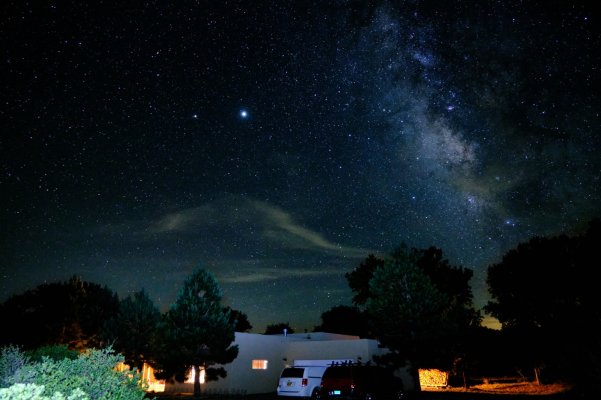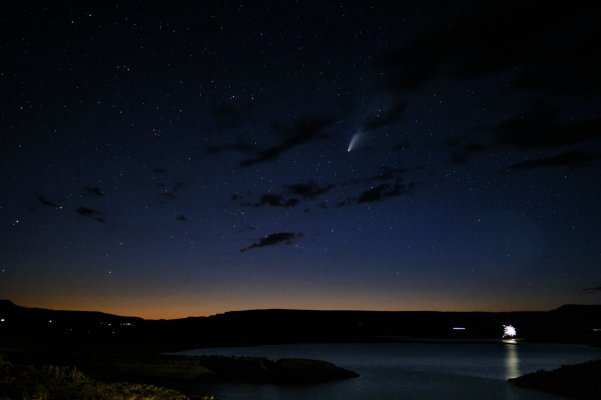I got interested a few years back and bought a Orion 10" Dobsonian. It had quite good optics for the price (about $500 or so IIRC) and you could see Saturn rings, things like that...
BUT
It was big...about 5 feet long, and if you pointed it at Saturn, then turned to your friend and offered him/her a look, Saturn had moved out of the field of view (damn Saturn, never staying put when you want it to).
I sold it when we moved into the RV but now that we have some mountain property and are building a house in the nearby town, I have been thinking about getting a more compact telescope that auto tracks, a Schmidt-Cassegrain


